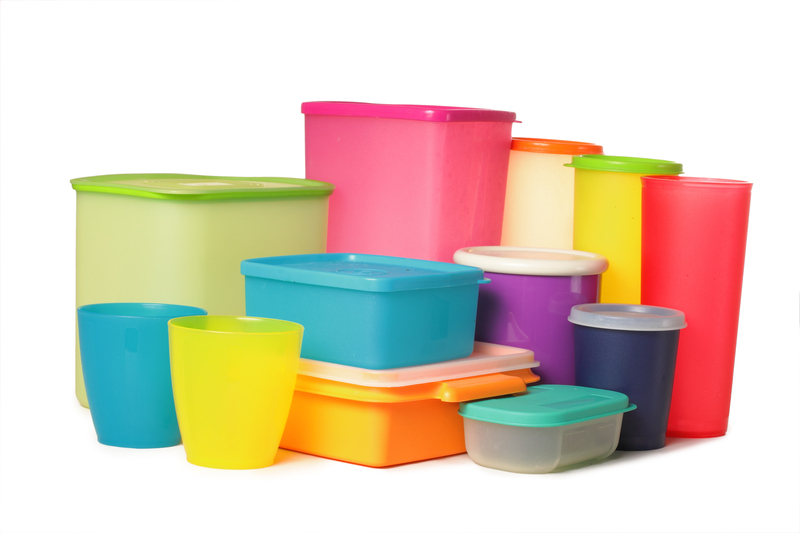Economical Solutions for Bulky Waste Items at Home
Bulky waste items are a common challenge in households, especially when it comes time for spring cleaning, moving, or renovating. Disposing of large and unwieldy objects--such as old furniture, mattresses, broken appliances, and garden debris--can often be expensive and inconvenient. However, with a little planning and creativity, there are several cost-effective solutions for large waste items that can help you save money, reduce clutter, and even benefit the environment. This comprehensive guide will explore economical ways to get rid of bulky waste at home, offering eco-friendly options, community initiatives, and practical tips for efficient disposal.
Understanding Bulky Waste Items
Before you can address the issue, it's important to define what counts as bulky household waste. Typically, these are items that are too large to fit in your regular waste or recycling bins. Some common examples include:
- Old sofas and chairs
- Mattresses and bed frames
- Refrigerators, washing machines, and other large appliances
- Carpets and rugs
- Large toys or play equipment
- Exercise equipment
- Broken cabinetry or bookcases
- Yard or garden debris
Many municipalities restrict these items from regular curbside collection, making their disposal more difficult. The good news is, affordable large item removal solutions exist--many of which can help you save money and minimize waste.

1. Reuse and Repurpose: The Cheapest Solution
Get Creative with Reuse
Reusing bulky waste items is often the most economical and sustainable solution. Before tossing your old sofa or bookcase, ask yourself:
- Can it be repaired or refurbished?
- Could a coat of paint or new hardware give it new life?
- Is there another purpose it could serve in your home or garden?
For example:
- Turn an old mattress into a recycled pet bed or garden cushion.
- Transform a broken dresser into garage storage shelves.
- Upholster and repaint outdated furniture to match your decor.
- Use reclaimed wood from bulky items for DIY projects or compost bins.
Repurposing not only saves you the cost of disposal, but also reduces landfill waste and promotes creativity.
2. Donation: Give Items a Second Life
Suitable Donation Options
Many bulky items are still usable and can benefit someone else. Donating large household items can be a win-win solution--helping your community and clearing up space. Common donation options include:
- Local charities and thrift stores (e.g., Goodwill, The Salvation Army)
- Furniture banks or shelters
- Churches or community centers
- Nonprofit organizations that recycle or repair items
Keep in mind:
- Most charities accept items in gently used and clean condition.
- Schedule a free pick-up service (many organizations offer this for large donations).
- Donation receipts may provide a tax deduction.
_Tip:_ Always call ahead to confirm if your item will be accepted, as guidelines can vary.
3. Sell or Give Away Bulky Items
Using Online Platforms
If your items still have value, selling or giving away bulky waste items online can offset disposal costs or even earn some extra cash. Consider:
- Marketplaces like Craigslist, Facebook Marketplace, or eBay
- Neighborhood apps such as Nextdoor
- Local classifieds or community bulletin boards
Tips for fast, hassle-free exchanges:
- Include clear photos and honest descriptions of item condition.
- Specify that buyer must arrange pickup to avoid moving heavy items yourself.
- Set a low or "free" price for quickest removal.
Community Giveaways
Host a curbside giveaway--simply set the item at your curb with a "free" sign. This is effective in active neighborhoods and during weekend clean-ups. Check local regulations before placing items outside, as some cities have rules about curbside disposal.
4. Municipal Collection Services
Bulk Waste Pick-up by Local Authorities
Many municipalities offer bulk waste pick-up programs for residents, often included as part of regular taxes or utility fees. These programs offer:
- Designated days for bulky waste collection
- Free or low-cost pickup of specified items
- Special collections for hazardous or electronic waste
Here's how to utilize your city's services:
- Check your local waste department's website for guidelines and schedules.
- Register or schedule a collection if required.
- Prepare and place items according to rules (remove doors from fridges, etc.)
Municipal programs are often the most budget-friendly way to dispose of large home waste items, as they are subsidized for residents.
5. Renting a Dumpster or Skip Bin - Shared Cost Solutions
Is Renting a Dumpster Worth It?
If you're undertaking a significant decluttering or renovation project generating multiple bulky items, renting a dumpster or skip bin can be economical when costs are split between neighbors or family members.
- Find local skip bin services offering short-term rentals
- Share with neighbors who also have waste to dispose of
- Choose the right size bin to avoid extra charges
This option is particularly cost-effective for large quantities of construction debris, yard waste, or simultaneous household clearouts.
6. Recycling Bulky Waste Responsibly
Separate and Recycle Components
Many bulky waste items can be partially recycled. For example, metal from appliances, wood from broken furniture, and fabrics from old sofas often have recycling value.
- Local recycling centers frequently accept scrap metal and electronics.
- Some stores and appliance companies offer take-back programs for large items.
- Mattress recycling programs exist in many cities, turning materials into new products.
_Tip:_ Check with your regional recycling directory for accepted items and drop-off locations to ensure proper disposal and avoid contamination fines.
7. Bulky Item Removal Services - Do Your Research
Hiring Professionals: Pros and Cons
If free or low-cost options do not work, hiring a bulky waste removal company may be necessary. However, you can still make this option more affordable:
- Compare multiple quotes to get the best price.
- Look for companies offering flat-rate or volume-based pricing.
- Prepare all items in one accessible location to avoid extra fee for hauling from inside the home.
- Bundle disposal with other neighbors or family members to split the cost.
Always ensure the company is licensed and insured, and confirm if they reuse, donate, or recycle as much as possible to minimize landfill impact.
8. Creative Community-Based Approaches
Organize a Neighborhood Clean-Up
Pooling resources with neighbors can make bulky waste disposal more economical and even fun! Some ideas include:
- Community skip days--outdoor bins provided for large items
- Neighborhood garage sales or swap events
- Joint hiring of a portable dumpster or removal truck
These initiatives can stimulate community spirit while reducing everyone's removal costs.
9. Safe Disposal of Special Bulky Waste
Hazardous and Electronic Waste
Items like fridges, freezers, air conditioners (with coolants), old TVs, or batteries require special disposal procedures by law. Many cities run free electronic or hazardous waste drop-off days to help residents safely and affordably get rid of these items.
- Check schedules for local e-waste drives
- Consult waste authorities for special pickup services for hazardous materials
Do not leave such items on the curb or dump them illegally--this can incur fines and harm the environment.
10. Preventing Future Bulky Waste Problems
The best way to avoid the headache and expense of bulky waste removal is to prevent accumulation in the first place. Consider these sustainable habits:
- Choose quality, durable items that last longer
- Opt for modular or easily recyclable furniture
- Purchase appliances from manufacturers with take-back or recycling programs
- Practice the "one in, one out" rule for large household items

Frequently Asked Questions About Bulky Waste Solutions
What is the most affordable way to dispose of bulky waste items?
Utilizing your local municipality's free or low-cost bulk waste collection service, donating usable items, or selling/giving them away online are usually the least expensive options.
Can I just leave large items on the curb?
Not usually--many cities require you to book a special pick-up for bulky items, or risk fines for illegal dumping.
Is renting a skip bin worth the price?
It is most cost-effective if shared with others or when disposing of many large items at once.
Are there free removal services for old furniture?
Yes, many charities and some municipal programs will pick up bulky items free of charge, especially if they are in usable condition.
Conclusion: Smart, Sustainable, and Economical Bulky Waste Removal
Disposing of bulky household items doesn't have to be costly or difficult. Through a combination of smart planning, community participation, selling, donating, recycling, and municipal services, you can find a solution that fits your budget and environmental values. By applying these economical solutions for bulky waste at home, you not only save money but actively contribute to a cleaner, greener, and more organized living space.
Remember: Reuse, donate, and recycle whenever possible, and participate in community clean-ups or municipal programs. For items requiring special handling, always follow local laws for safe disposal. With these strategies, you can manage bulky waste easily and affordably, turning what could be a headache into an opportunity for improvement and community connection.
